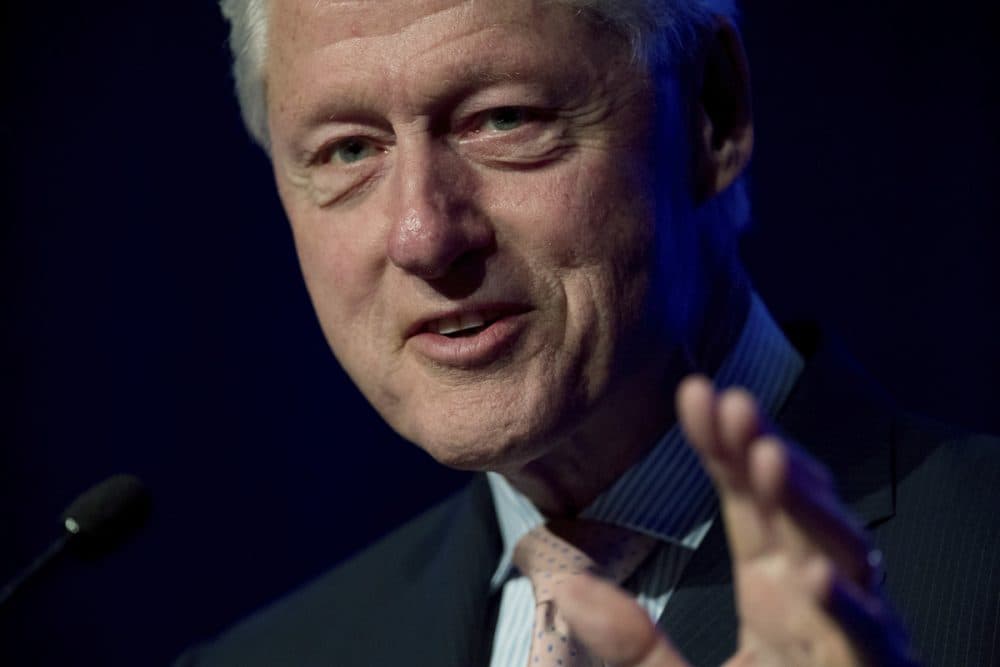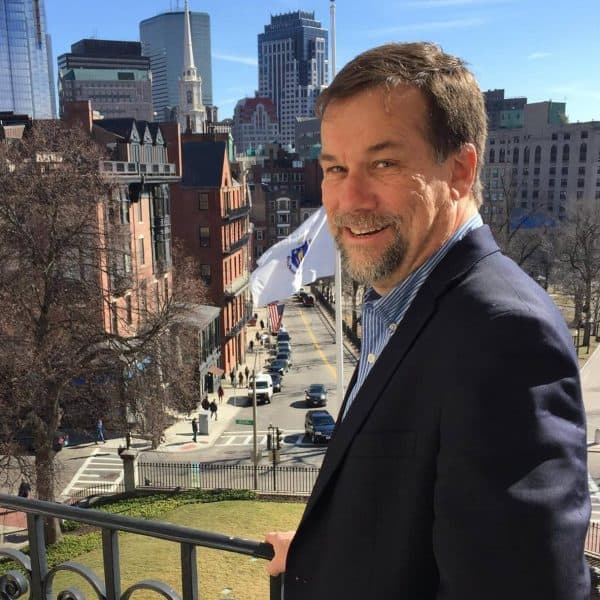Advertisement
Bill Clinton Urges University Students In Boston To Be Willing To Compromise
Resume
The 10th annual Clinton Global Initiative University wraps up with a day of service in Boston Sunday. Hundreds of college students from all over the world have been taking part at the three-day event, this year at Northeastern University.
Former President Clinton, along with his daughter, Chelsea Clinton, and Congressman Joseph Kennedy III, fielded questions at the closing session Saturday night at Matthews Arena.
The university is an offshoot of the Clinton Global Initiative, which brings world leaders together to take action on global challenges. The university seeks to engage younger people in that as well, giving them the chance to hear from experts in various fields and strategize ways to bring positive change to the world.
Clinton stressed to the audience the importance of being willing to compromise.
"I think most of us, once we trust each other, want to compromise," said the 71-year-old former president. "I watched Yitzhak Rabin and Yasser Arafat compromise. I watched Nelson Mandela put the leader of the party that put him in prison for 27 years in his government, forcing himself to compromise when he had gotten 63 percent of the vote. There's nothing wrong with it. It's not weak, it's strong, so long as it's principled, and you know what you will not do."
Clinton's comments were offered in juxtaposition to the hard line that many government leaders in Washington appear to be taking today.
The panel identified opiate addiction as one of the major problems facing the world today.
"I think most of us, once we trust each other, want to compromise."
Bill Clinton
Clinton says he's really worried the recent announcement about cutbacks on health care subsidies will put new strains on state and local community health programs.
"We can all sit here and complain that the only people who get decent drug treatment and have a real chance to break this come from families like ours. That is not a sustainable approach. But bringing people back with Narcan and then getting them to detox and then repeating the whole thing all over again is not a sustainable approach either," said Clinton.
Earlier in the day, a last-minute session on opiate addiction was added to the program.
Students attending the event seemed ready to turn words into action.
"I think what I'm taking away is just the empowerment and the ability to see that so many people my age and in my age range are moving forward with initiatives that are not only pertaining to where they live but also globally," said David Kanos, an international student from Nigeria attending George Mason University.
"I think hearing from the various speakers and the people who had various initiatives also has shown me that this is not something that is just abstract but actually can be something that can be actualized and put into something tangible," he added.
Kanos has some lofty goals. He said he would like to be Nigeria's ambassador to the United Nations, or Nigeria's ambassador to the United States.
This article was originally published on October 15, 2017.
This segment aired on October 15, 2017.
